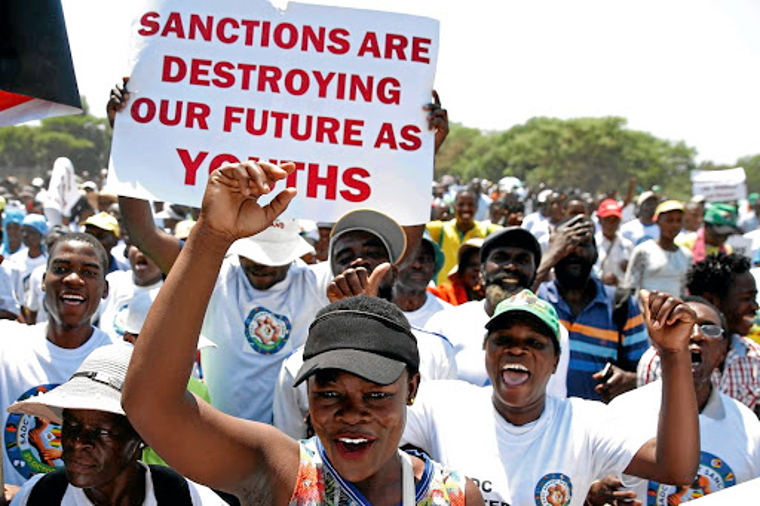The US government and its running dogs in Zimbabwe want the media chatter to be more on the 11 individuals and three commercial entities that have been put under the Magnitsky Act, and less on the revoked orders for what turns out to be cheap and misleading propaganda purposes. ‘Cheap’ because geopolitics, international relations and international law are about states and their institutions, systems, processes and international law; not about individuals.
It is ‘cheap’ and ‘misleading’ for the US to make propaganda noise about 11 individuals, nine of whom were already under substantially the same sanctions – some of them for all the 21 years of the revoked orders – while pretending that there’s something substantially different or dramatic about the Magnitsky sanctions.
Being shrill about removing a handful of individuals from a 21-year-old failed and now rotten US sanctions basket, and putting them on another seven-year old US basket with an exotic Russian name, and nothing else, and dubbing that propaganda basket; a “sanctions transition”, is actually a dumb stunt equivalent to gloating over transferring bones from one grave to another.
The stunt becomes a hostile act and an attack on Zimbabwe’s sovereignty with unpredictable consequences when, because it is bereft of substance and is in breach of international law – it is used as a propaganda tool to mock or humiliate the national leadership of a sovereign state or to cause divisions within the apex of the country’s national security ranks.
It is important to understand why the US, in the words of its officials, is “transitioning” from country-specific sanctions – such as the ‘Zimbabwe Sanctions Program’ – to the ‘Magnitsky Global Sanctions Program’. The devil is in this detail.
According to a 2021 assessment by the Congressional Research Service, “Global Magnitsky’s global remit may avoid some challenges associated with country-specific sanctions regimes; like Zdera.
Experts who spoke to the Congressional Research Service noted that creating a country-specific regime can be laborious and can sometimes complicate diplomatic relations and/or have unintended ramifications.
The experts said, pursuant to IEEPA, creating a country-specific sanctions programme like Zdera requires a national emergency declaration that must necessarily be claimed to be due to ‘an unusual and extraordinary threat … to the national security, foreign policy, or economy of the United States.’
For example, the Congressional Research Service reported that, in 2015 testimony to Congress, an executive branch official noted that the use of IEEPA-mandated language in a national emergency declaration allowing for sanctions against individuals in Venezuela, for instance, generated blowback … from the region, including from some of US allies and partners in the region, and from the Government of Venezuela itself.
According to the official, the national emergency language can be used, as it must be, to show that the United States is, in effect, going to war against the country targeted by the declaration of a national emergency.
Interestingly, the Congressional Research Services notes that the United States has used Global Magnitsky authorities to designate nationals of some of its so-called democratic allies and/or countries with which it has generally positive bilateral relations, such as Bulgaria, Israel, Latvia, and South Africa.
Continued next page
(1121 VIEWS)


